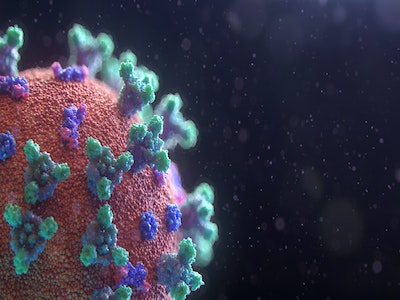The first participants in a trial to evaluate whether a new coronavirus vaccine is well-tolerated and produces an effective immune response have received doses.
The clinical team administering the doses are monitoring the participants closely and report they are in good health with no safety concerns.
The Imperial College led study involved staff from Imperial College Healthcare NHS Trust and is the first time the vaccine has been trialled in humans.
300 healthy participants will receive two doses of the vaccine over the coming weeks.
It will be the first test of a new self-amplifying RNA technology, which has the potential to revolutionise vaccine development and enable scientists to respond more quickly to emerging diseases.
Many other vaccines are based on the weakened or modified form of the virus where this vaccine uses synthetic strands of genetic code (RNA), based on the virus’s genetic material.
The RNA self-amplifies generating copies of itself once injected into the muscle.
It instructs the body’s own cells to make copies of a spike protein found outside of the virus.
This should then train the immune system to respond to the coronavirus so the body can easily recognise it and defend itself from it in future.
Dr Katrina Pollock, senior clinical research fellow in vaccinology and Chief Investigator of the study, said:
“We have reached a significant milestone in this ground-breaking study with the first dose of a self-amplifying RNA vaccine delivered safely.
“We are now poised to test the vaccine in the dose evaluation phase before moving forward to evaluating it in larger numbers.
“It is a privilege to be part of this important work and the team are extremely grateful for the enthusiasm and support from our volunteers, without whom clinical research would not be possible.
“It is a tribute to science and the widespread desire to assist the COVID-19 vaccine programme that thousands are signing up to be a part of these vaccine studies. I look forward to providing more updates on our progress as we gather more data.”
Ultimately, the researchers hope that if clinical trials are successful, the vaccine could provide protection for the most vulnerable against COVID-19 both in the UK and around the world.
In the long-term, this would help with the continued easing of restrictions and help people return to normal life.
Dr Bob Klaber, director of strategy, research and innovation at the Trust said:
“Clinical research is vital in the fight against coronavirus.
“The speed with which academics and clinicians have come together to share their expertise and experience of the virus and to get to the point of human trials for a promising vaccine candidate has been remarkable.
“With the support of the volunteers who have put themselves forward to be part of the trial we hope that this research will enable us to change the way we respond as a country and international community to the huge challenges this virus is presenting us with.”
Business Secretary Alok Sharma MP said:
“I am incredibly proud the vaccine being developed by Imperial College London is one of the world’s front-runners.
“We are fully backing its research with over £40 million government funding, as part of our wider vaccines’ development programme.
“The fast progress of Imperial’s vaccine is testament to the ingenuity and tenacity of Britain’s researchers.
“If these trials are successful a vaccine will not only help us tackle coronavirus but also emerging diseases now and into the future.”
The research has been supported by the UK Medical Research Council, UK Research and Innovation, The Department of Health and Social Care, the Department for Business, Energy and Industrial Strategy, the National Institute for Health Research, along with a number of philanthropic donations.



